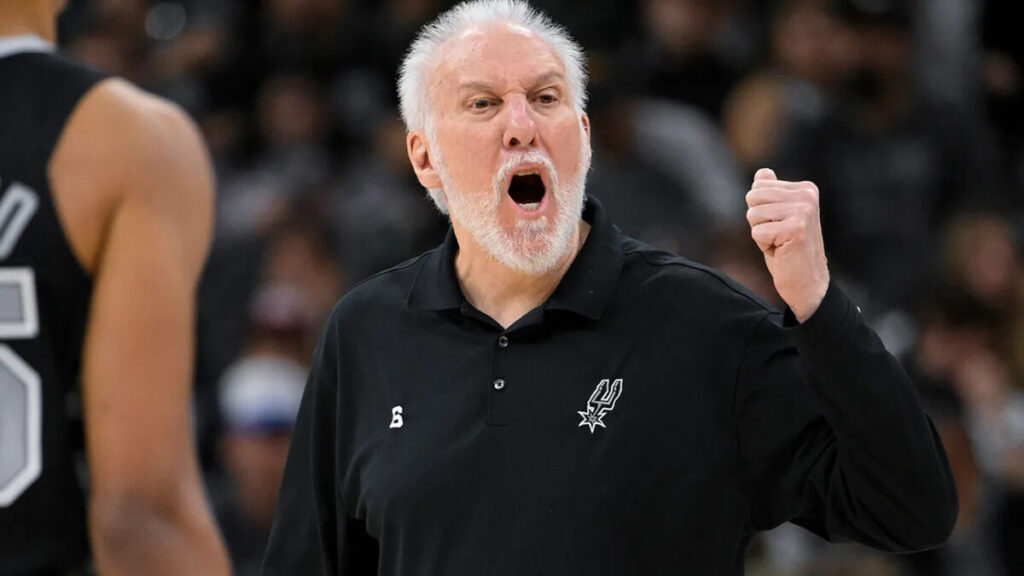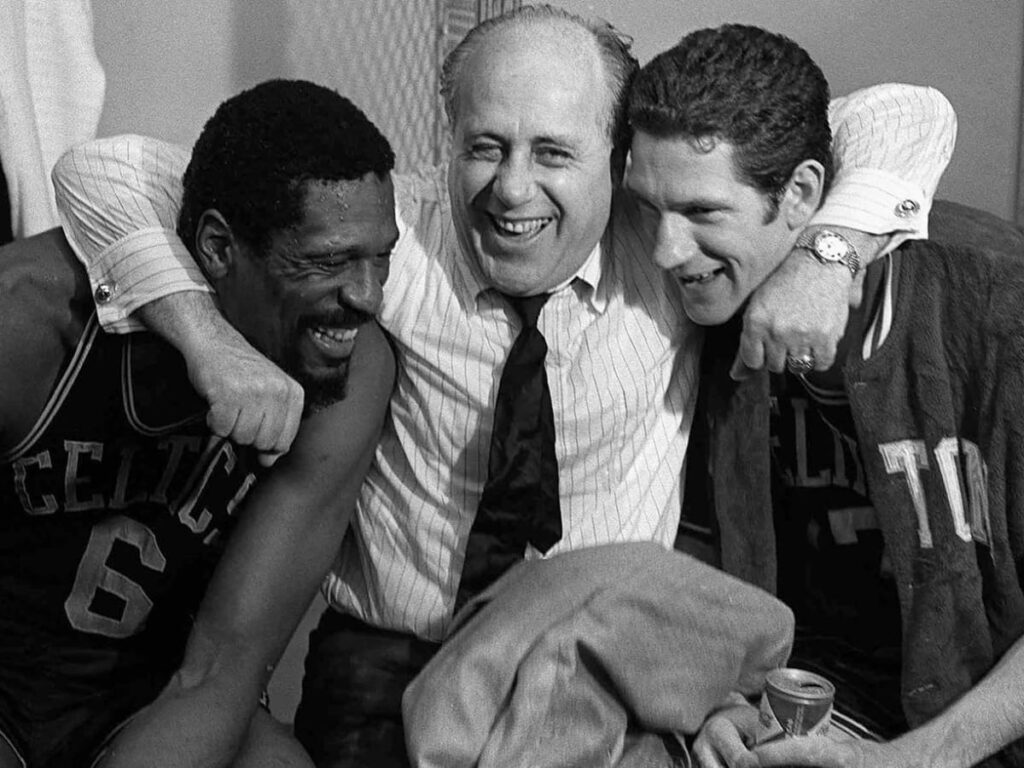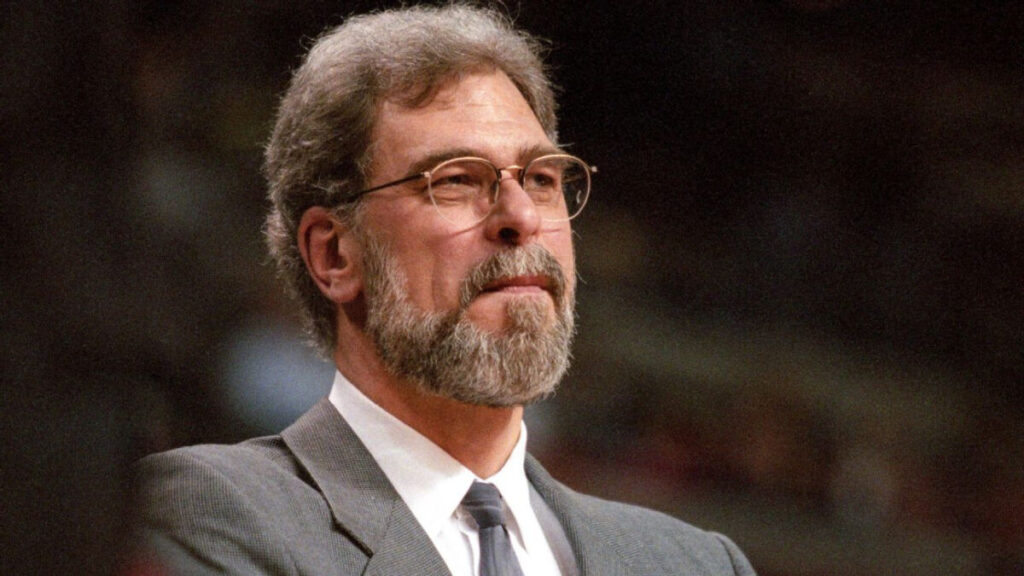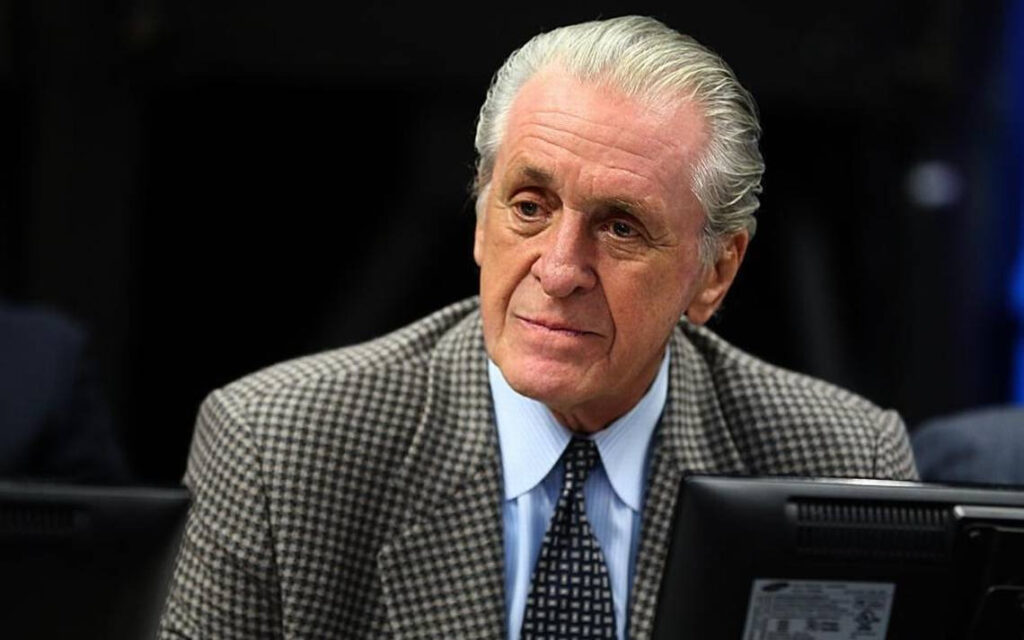Coaching is an integral part of any sport, and basketball is no exception. A great coach can truly elevate the game and shape a team into something special. Basketball has been blessed with many legendary coaches throughout its history, and their impact on the National Basketball Association (NBA) is still being felt to this day.
A legendary coach can be defined as one who not only brings wins to a team but also earns respect from all people—players, fans, and counterparts alike. On the court, these coaches put in all their effort to get the best out of their players by executing unique strategies and tactics on both offense and defense that have helped define and revolutionize basketball itself. Off the court, they served as mentors, developing much-needed relationships with the players to ensure each team ran like a well-oiled machine.
In this article we will explore some of the most influential coaches ever to grace the NBA’s hardcourt, including Greg Popovich, Red Auerbach, Phil Jackson, and Pat Riley. Each of these outstanding individuals had unique approaches to coaching that dominated the league for years. We will take a look at their playing/coaching careers, strategies implemented, championships won, and impact felt on the entire game. By looking at their successes and examining why they continue to leave their mark even decades later, we should gain a better understanding of what it takes to become a legendary coach in the NBA.
Greg Popovich: Winning the Most Championships
Greg Popovich is one of the greatest coaches in NBA history. Since 1996, he has served as head coach of the San Antonio Spurs and they have not missed the playoffs even once under his leadership. Popovich’s longevity is impressive, but it’s his success that truly stands out—his team captured five titles and won nine division championships during his tenure. Even more remarkable is the fact that he accomplished all this with a relatively modest roster by modern standards, relying instead on discipline and team chemistry to drive results.
Popovich’s approach to coaching involves teaching players to maximize their individual talents while also putting emphasis on selfless collective play. He devoted much time to creating an environment where relationships are built on trust and understanding, allowing for mutual respect among players to grow over time. As part of this process, Popovich pays special attention to personal treatment so that players feel comfortable discussing any issues or conflicts they might have.

Popovich’s coaching methods played a key role in bringing championships to San Antonio. His ability to develop somewhat limited talent into contending teams without superstars allowed the Spurs to stay competitive at the highest level well past their prime. This was particularly evident when they won the 2014 title despite starting two former undrafted players in Danny Green and Kawhi Leonard against the Miami Heat’s star-studded lineup led by LeBron James, Dwyane Wade, and Chris Bosh—the first such instance since 1979.
Popovich also made sure stability reigned within the team’s ranks, streaming together consistent success for most of his career through rarely making any major player trades. Tinkering with a few pieces here and there, he would maintain a rotation consisting mainly of core veterans who had already been around for several years, which gave them better familiarity with each other’s playing styles. To put it simply, he had established synergy among veterans such as Tony Parker, Manu Ginobili, and Tim Duncan which enabled them to gel better than many new signings could hope for.
In addition to his unique approach of shaping up veterans into winners, Popovich taught younger prospects how to thrive in a winning environment from day one on the job due to his vast experience with elder basketballers. His ability to bridge mentor/mentee relationships and ensure lasting connections were formed showed everyone what it takes not only to succeed but sustain success over long periods of time in the NBA.
Greg Popovich has accomplished a great deal in his coaching career, most notably winning five NBA championships and becoming the longest-tenured head coach in league history. He also won three NBA Coach of the Year awards and was head coach of four All-Star Games over the course of his career. His success as a coach has been unparalleled, and he is widely considered one of the best NBA coaches in history.
Red Auerbach: Innovating the NBA and Creating an Empire
Red Auerbach is arguably second-to-none when it comes to legendary NBA coaches. From 1950s to 1984 he served as Boston Celtics head coach and president, during which time the team won an astonishing 16 championships and made a staggering 21 appearances in the NBA finals. His achievements were so impressive that in 1966, Auerbach became the first individual ever to be included in the Basketball Hall of Fame as both a player and a coach.
Auerbach changed the landscape of coaching in the NBA in many ways. On the court, he was one of the earliest adopters and innovators of the talent scout system, traveling far and wide to find players who fit into his vision—even if they weren’t necessarily “star” material.

By focusing on finding overlooked gems and assembling them into cohesive units, Auerbach built up a dynasty which lasted for decades, even after his departure from the role. He also employed strict ground rules for his players that focused on teamwork, leading by example, and empowering individuals to make decisions backed by principles rather than superstitions or hearsay—all of which are still practiced today.
Off the court, Auerbach was also credited for helping launch the league into modernity. When he ran the organization, he famously introduced many now iconic aspects of basketball culture such as using smoke signals to signify starting lineups and being one of the first coaches to fly teams around instead of having them ride on buses for long trips. His political stance against racism also helped pave the way for much needed progressivity when it came to hiring higher-ups in order to make sure everyone felt equal within the system regardless of race or ethnicity.
Auerbach’s lasting legacy spoke volumes not only about him but his team—his Celtics side was known not just for its successes (which there were plenty of) but also resilience in times of difficulty where some could easily have wavered or given up hope. With his teachings entrenched in every part of Celtics culture, Red Auerbach left behind something truly priceless that went beyond just wins.
Red Auerbach is an illustrious figure in the world of basketball with a collection of accolades many can only dream of. He led the Boston Celtics to nine NBA championships, having been named the NBA Coach of the Year once during the 1965–66 season and Head Coach for 11 All-Star games. He was inducted into the Naismith Memorial Basketball Hall of Fame in 1968 and also has his own statue outside Fenway Park as well as a street dedicated to him.
Phil Jackson: Developing Superstar Players
Phil Jackson is another name that belongs in the top tier of legendary NBA coaches. Also known as the “Zen Master”, Jackson served a total of 14 seasons as head coach for two different teams—nine with the Chicago Bulls and five with the Los Angeles Lakers—during which he won 11 championships, tied for being the winningest coach on record alongside longtime Celtics boss Red Auerbach.
What made Jackson so special was his ability to rally talented professionals towards success despite their overwhelming egos. He is second only to Popovich in terms of developing superstar players into MVPs by trusting them to be leaders and having confidence in what they could do when given creative freedom. His Triangle Offense system (which he learned while an apprentice under the-Knicks coach Tex Winter) also proved to be revolutionary and game-changing during the 1990s and 2000s, setting an offensive standard that still stands today.

Another impressive attribute of Jackson was his calm attitude, especially considering the pressure-filled situations he found himself in when leading star-studded teams with massive expectations crashing upon them every season. In response, he implemented a Zen-like aura both on and off the court by applying meditative poems, guided meditation sessions, and mindfulness exercises to help the team maintain clarity and stay focused.
The greatest testament to Jackson’s immense skill as an NBA head coach lies in how his players felt about him. Generation after generation looked up to him not just as an intimidating mentor but also as an encouraging father figure—this would often take shape through postgame handshakes where criticism intertwined with congratulations to ultimately compliment a job well done. His combined experience as a player and a teacher meant that he knew exactly how to push even Steve Kerr or Michael Jordan into becoming perennial all-stars—a feat few other coaches have achieved in recent years.
Phil Jackson is an 11-time NBA champion, a 1-time NBA Coach of the Year and 4-time NBA All-Star Game head coach. He can truly be considered one of the greatest head coaches in basketball history as he has achieved remarkable success with many teams. His career resume includes six championships with the Chicago Bulls and five titles with the Los Angeles Lakers, as well as his distinction of being the only coach to win three consecutive championships multiple times (1991–1993; 1996–1998).
Pat Riley: Taking Teams to New Levels of Success
Pat Riley has had one of the most successful careers out of any legendary NBA coach. He has served as head coach in various capacities across four different franchises, including various tenures with both New York Knicks and Miami Heat, where he earned five titles along the way. Beyond his undeniable success, though, Riley is perhaps best remembered for his focus on team-building which helped create powerhouses never seen before or since.
Riley’s approach called for three very distinct attitudes: “power”, “intelligence”, and “intensity”. He expected all of his players to possess these qualities if they wanted to achieve maximum potential under him. These were complemented by giving motivational speeches at halftime and breaking down action from recent games using film analysis from sports psychologists—both of which provided essential feedback while also ensuring high morale within the team remained unchanged between contests.
Due to his commitment to fostering growth within his squads, Pat Riley can claim partial credit for superstars such as Magic Johnson and Shaquille O’Neal blossoming into icons that are universally recognized even today. His usage of disparate lineup decks such as 32-year old center aged Patrick Ewing eying double digits in rebounds per game or converting reserve guard Eddie Jones into a prolific starter set new standards across many teams throughout the 90s basketball era. Alongside renowned decision-makers like Tex Winter, Pat Riley literally wrote basketball theory’s history in terms of understanding how chemistry works among differing talents playing together.

Riley’s administrative skills also saw him ushering cutting edge advancements by reviving dormant strategies other rivals didn’t even consider yet—most famously implementing the “diamond press” defense which forced turnovers at alarming levels compared to other man defenses of that time period without having to sacrifice finding open shots on offense. In summary, one must think twice how many teams would’ve been able to turn such beaten down rosters into owning 23 seeded championships without Pat Riley’s guidance pushing them ever further forwards.
Pat Riley is one of the most accomplished coaches in NBA history, winning five championships and earning three Coach of the Year awards. He was also selected as the head coach for nine All-Star games throughout his legendary run with the Lakers, Heat, and Knicks. His immense success can be attributed to his team-building skills, excellent coaching strategies, and a relentless pursuit of excellence.
Conclusion
Legendary coaches have left a lasting legacy on the game of basketball and the NBA. Their unique approaches to coaching enabled their teams to change the standards for championship-level play and achieve success which was previously thought impossible.
Greg Popovich showed us what it takes to win titles with limited roster talent and stressed the importance of building trust within team dynamics so that players could better support each other. Red Auerbach helped revolutionize the modern game of basketball while being one of the league’s earliest pioneers in breaking barriers against racism and prejudice.
Phil Jackson shaped superstar players with meditation practices while finding the necessary balance between control and creative freedom, while Pat Riley demonstrated that any roster can be successful by creating chemistry among differing talents and pushing them forward ever higher.
These legendary coaches formed history itself, influencing generations of players and leaving behind legacies that will be praised for decades to come. Their impact on the game lives on today, teaching us invaluable lessons about how to work together as a unit in order to surpass expectations and make winning second nature.





